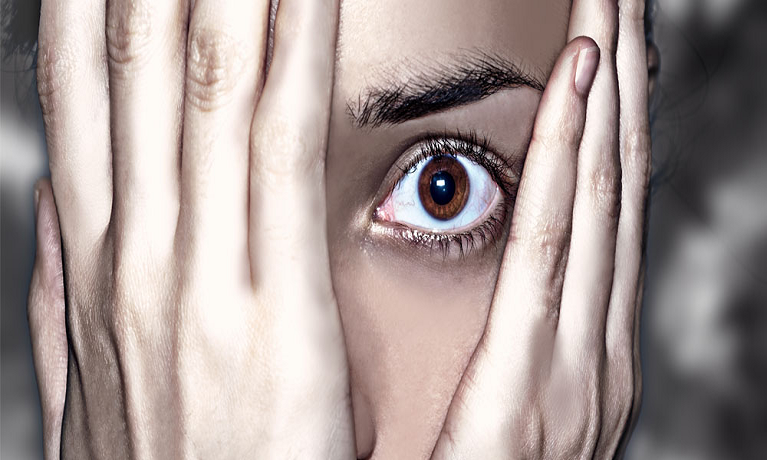Search
‘Smart spectacles’ may help people with facial palsy smile again

Monday 05 October 2020
Press contact
Academics at Coventry University have been involved in a nationally funded study, led by Nottingham Trent University, to explore the potential for ‘smart spectacles’ - glasses with sensors in the frame - to help the recovery of patients with facial palsy.
Facial palsy is estimated to affect 1 in 60 people over the course of their lifetime, with 30 per cent of patients suffering long-term facial disfigurement, facial pain, and sometimes involuntary movements.
As part of the study, new research – led by Professor Ala Szczepura at Coventry University and published today in the Journal of Medical Internet Research – explores how ‘smart spectacles’ could help patients access tailored therapy to strengthen muscle and improve nerve function - facial neuromuscular retraining - and then to successfully complete their prescribed facial exercises.
The views and experiences of hundreds of facial palsy patients, specialist therapists, and experts have been surveyed across the UK.
The research, which was carried out in collaboration with Queen Victoria Hospital Trust West Sussex, the national patient charity Facial Palsy UK, and digital technology company Emteq, has demonstrated significant variations in care pathways across the UK. In particular that:
- referrals for facial neuromuscular retraining occur at varying points in the care pathway, with one third of GP referrals initiated by patients themselves;
- one in ten patients travel considerable distances (115 miles or more) to access this specialist therapy;
- although care pathways involve several different specialists, including surgeons and neurologists, multidisciplinary case reviews are rare;
- patients and clinicians are very positive about the introduction of this new technology to aid therapy, but they identify a number of key barriers to technology introduction.
Facial palsy patients remain a largely forgotten group in UK policy debate around the use of digital care. This appears partly due to a lack of information on current treatment pathways. Our study significantly adds to the very limited research previously available on this and the views of patients and clinicians on the willingness to use ‘smart spectacles’ to improve access to therapy and monitoring of recovery. It may be that one legacy of the current pandemic will be greater organisational acceptance of such digital technology introduction, especially if cost-effectiveness can be demonstrated. We are currently modelling the cost-effectiveness of this new digital health technology.
Professor Ala Szczepura, Coventry University’s Centre for Intelligent Healthcare
Much of Facial Palsy UK’s work involves helping patients access specialist healthcare; delayed access to an appropriate clinician can severely impact recovery outcomes. Insufficient evidence is frequently used as a reason for denying therapeutic treatments to this patient group. International guidance has highlighted a need for shared decision-making, and consideration of increased use of new technology in treatment of facial palsy. Embracing new technology as part of the patient treatment journey should also allow data on recovery to be recorded better and improve the evidence on therapy effectiveness. This study provides useful evidence to inform any future debate as healthcare systems move toward digital delivery in the post-COVID-19 world.
Karen Johnson, Deputy CEO, Facial Palsy UK
I realised that many of my facial palsy patients appeared to have received little or no support. Some people had become reclusive and many had struggled to access services and treatments that could greatly improve their quality of life. The findings of this study confirm the importance of better understanding patients’ and clinicians’ experiences and views if we are to improve care pathways and to ensure relevance of future treatment guidelines for this neurological disorder. New digital technology could not only provide feedback in real time, but also allow scrutiny of quantitative outcome measures to promote best practise.
Mr Charles Nduka, plastic reconstructive surgeon at the Queen Victoria Hospital in East Grinstead and co-founder of Facial Palsy UK




